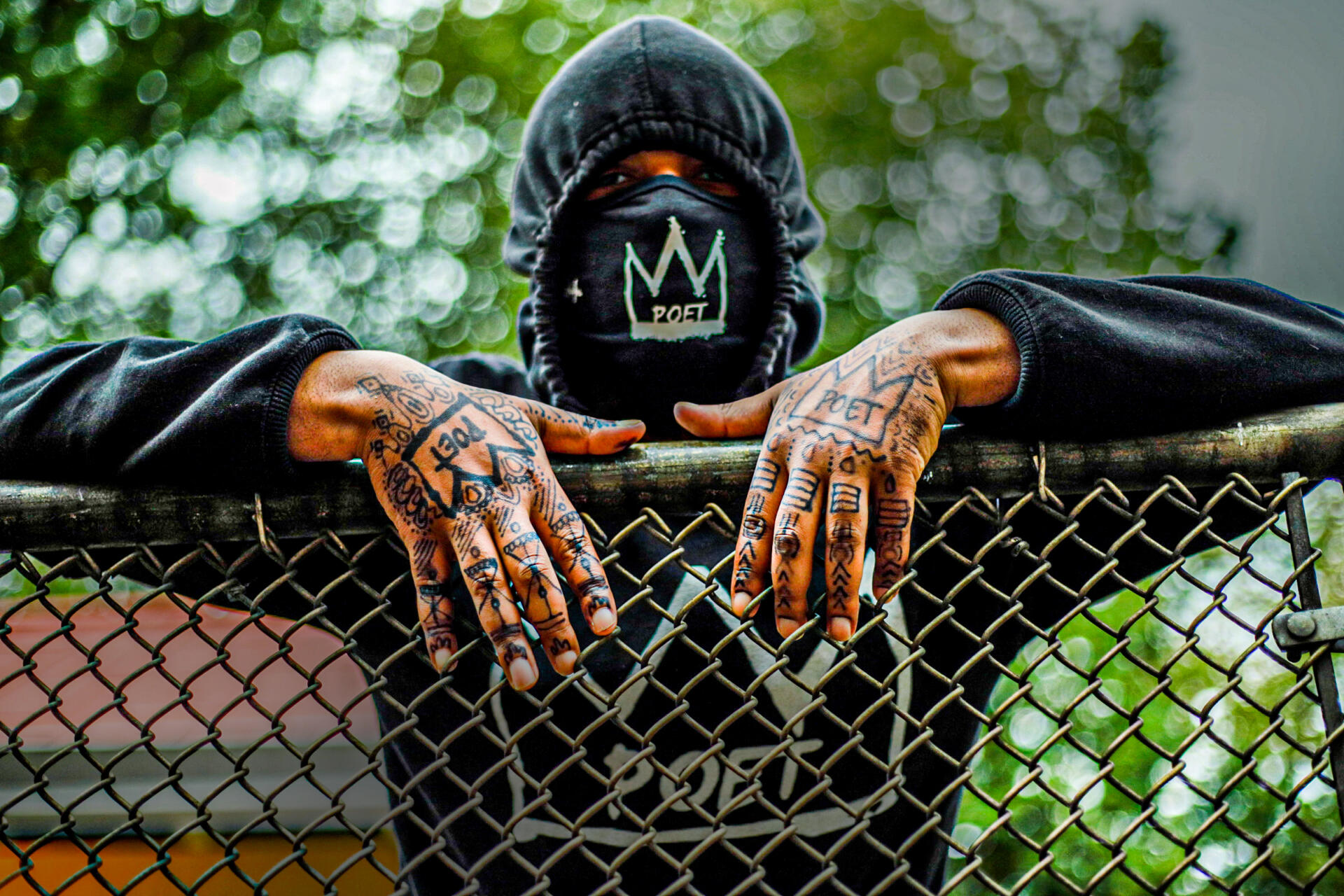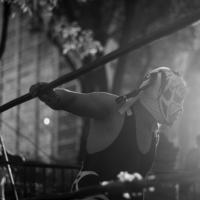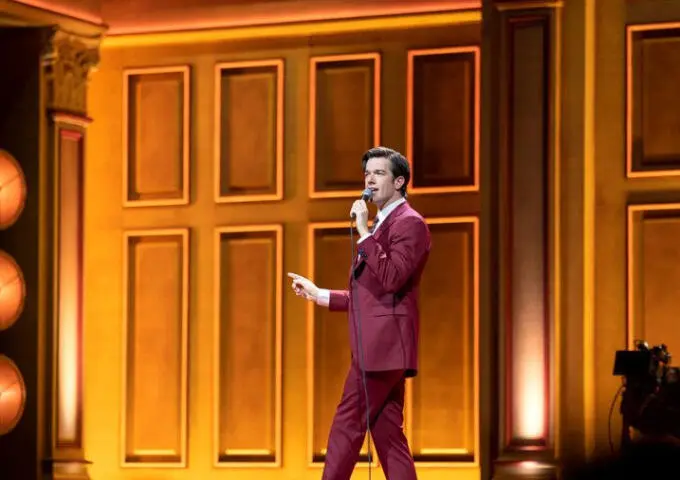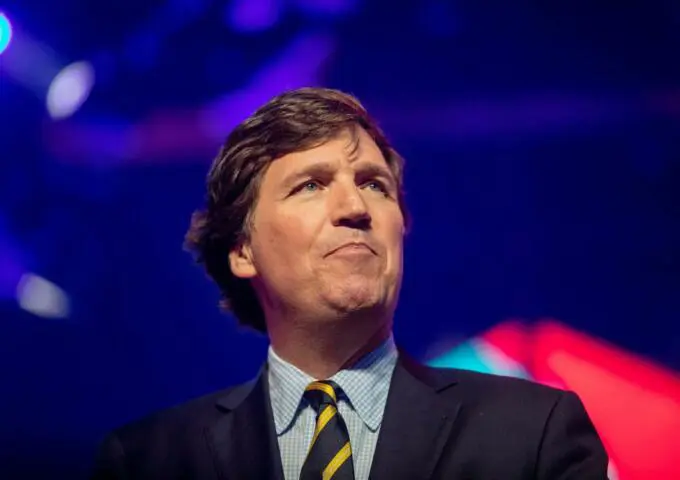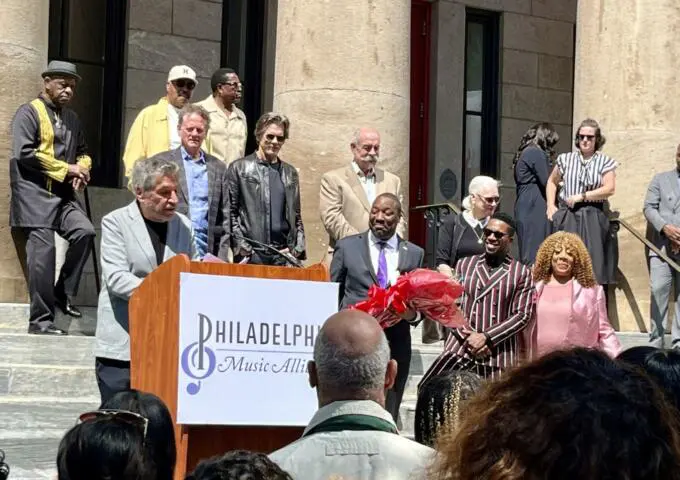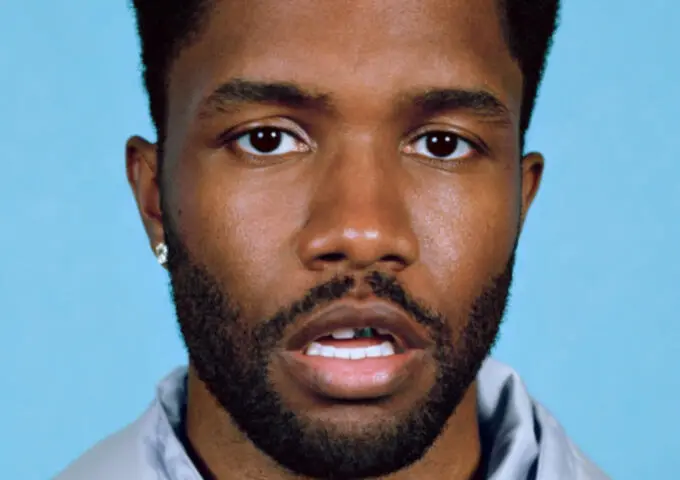Uptown Philadelphia LindoYes is a spoken word artist, creator of LindoYes! clothing line and an event host.
He is an unapologetically Black fusion of theatrical poetics and visual art whose work addresses the constructs of love, masculinity and social injustice.
Lindo has slowly been growing quite the following in the spoken word community and beyond, especially after being featured on the legendary Def Poetry Jam this past summer. He has a gift for highlighting the metaphors in life through his quick and poignant spoken word pieces. His pieces typically focus on important topics such as Black joy, soft masculinity, and Black emotional well-being.
In the past, LindoYes has worked as a member of the organizational team for a local Philadelphia open mic, Pecola Breedlove and the Freedom Party, and has served as the lead facilitator and visionary behind the WildSeed poetry series. Throughout the years, he’s taken his experience as a facilitator and brought it to the classroom. Now serving as a teaching artist for multiple nonprofit organizations, LindoYes builds a curriculum to help youth express themselves through creative writing, visual arts, and performing arts centered around social activism and personal development. Lindo also does consulting work for poets and artreprenuers in the Philadelphia area.
Recently, the video and digital track for “Flowers,” another well-received piece from Lindo, went live.
“‘Flowers’ is a poem that explores the resilience of Black people using the metaphor of a flower,” Lindo said.
“This video, animated by Chanchal Gupta, serves as a visual representation of the self-preservation and beautiful potential present in Black people and our experiences.”
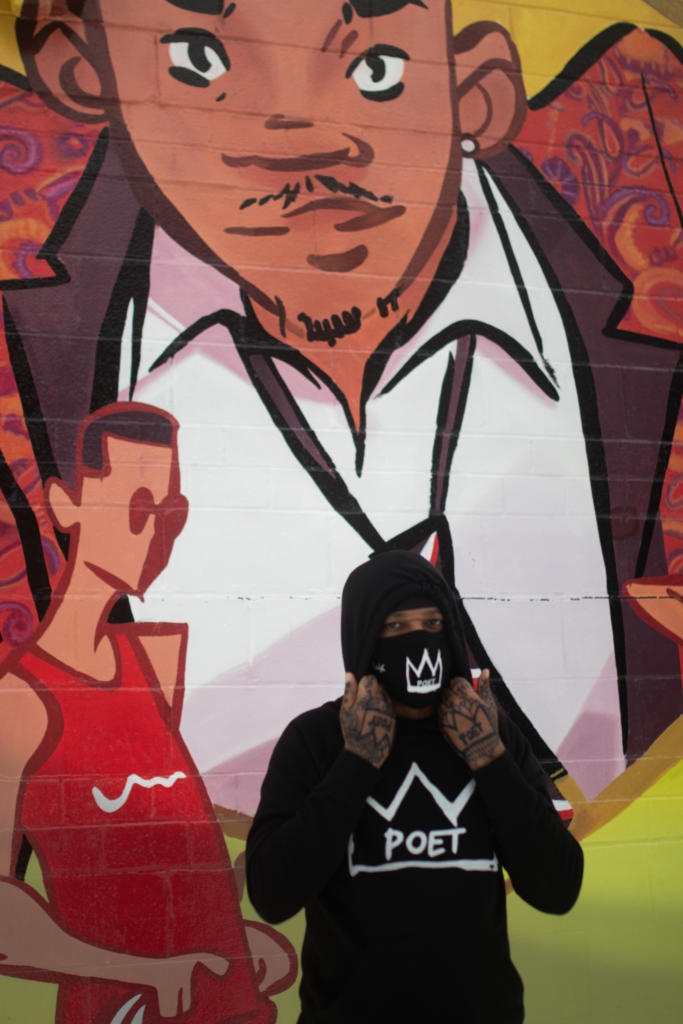
PW recently caught up with Lindo to talk about his work and performances.
When did you first begin to explore becoming a spoken word artist? Who or what inspired you to take this path?
I’ve always been doing spoken word. At the time I was in school, I wasn’t aware of it but I was overcoming social anxiety and always rehearsing talking points and conversations in my head so I wouldn’t have this fear of self-deprecation. That led to me finding ways to say the most impactful things possible. I would anticipate the teacher calling on me or running into a friend and them asking me how a show went last night. In that process, I’m rehearsing these points of how I’d respond, so I’ve always been doing poetry because I am thinking of the best ways to express myself. I also have a love of comic books, fantasy, sci-fi, and superheroes in general, so when I realized I was doing poetry it felt like a superpower cause it allows me to be the most impactful to the world around me.
How does growing up in Philadelphia shape your work?
Philadelphia has my whole heart. The culture, the slang (well, the slang is the culture). I can’t imagine being in any other place doing poetry. The Philadelphia poetry scene has made such an impression on the rest of the world, if you think about how many times the Philadelphia youth poetry team has won on national stages or how many other great poets have come out of Philadelphia, like Sonia Sanchez. Poetry is so powerful to Philadelphia that we have a Philadelphia poet laureate and I don’t know that every city can say that.
This past summer, you were featured on the Def Poetry Jam. Can you talk a little about that experience?
That jawnski had me ecstatic! I remember sending in some audition videos because I ran into one of the producers of Def Poetry Jam and they said they’re gonna do it again. They saw me perform, and I told them I submitted, then I didn’t hear back for like a month and a half. I had just written it off that I didn’t make the cut.
Then, one morning, I woke up and I saw that I was listed, and a couple of my friends were tagging me. It was such a surreal moment ‘cause when I was developing my craft and saying “this is what I wanna do,” part of me was understanding what poets have done prior to me and what poets were doing while I was developing, and I was going back to just watch Def Poetry Jam and also just viewing poetry on YouTube. So, I was ecstatic to put myself among those stars and those that have already done something to pioneer a space for me. It felt like a moment of validation.
In addition to your career as a spoken word artist and the creator of a clothing line, you also are a teacher for many nonprofits. What drew you to working with young people and helping them to express themselves? How rewarding is it to see them grow and expand their horizons?
For me, teaching became one hand washing the other. I started teaching spoken word when a nonprofit had hit me up asking if I could teach a spoken word class about what I do on stage and performing and creating art. I was hesitant at first ‘cause teaching is so different than actually doing. A lot of people can be talented but not teach the talent. So, I was uncertain if I could teach someone even if I was confident in my ability to do so.
What I found in the process of teaching poetry and talking about the issues that are brought up in poetry, I was learning in the process. It became something so rewarding to me. The repetition of talking about different literary devices and talking about the issues or just being aware of issues others bring up in poetry. It was also a space where I found the scholars I was working with were creating a sanctuary for themselves, and also art activism. That was one of the first times early in my career that I saw art as not just entertainment but also activist work. For me, working in the nonprofit sector has shown me how art is activism and a message you have in a poem makes movements irresistible and it allows for a lot of people to gravitate to a message. Like it took 10 years for Black Lives Matter to have like 60 percent-some people saying, “I get it,” and one of the reasons why that message resonates is that we’ve seen so much art around Black Lives Matter. From it being on a protest sign or being a poem or photo or illustration.
You’ve just released a video for your poem “Flowers.” How did both the poem and the video come together? How can people see the video?
“Flowers” is really about how Black people are as resilient as flowers and how there are so many similarities to them. I came up with that thought when I was thinking about that expression of the rose that grew from concrete and talking about how defying all the odds, we’re able to do things. I was also thinking about it in terms of the urban farmers and the people that take care of flowers. Even within untraditional circumstances of being in an apartment growing flowers or building a greenhouse in your house, somehow, you as a Black person are creating resilience and caring. How that resilience and caring is symbolic to a flower that is resistant to any condition to grow.
You can check out the video on my Instagram.
These days, it’s hard to see too far into the future, but do you have any other projects in the works? What’s ahead for you?
I’m in this chapter of my poetry career of expanding my poetry into short animations and comic books with four or five panels that showcase my art in a different way. Also, the nerd in me wants to have fun with animation and comic books. So that’s what I‘ve been doing with a lot of my poems – revisiting them and seeing how I can restructure them into short animations or comics. So, you’ll see more of that coming out on my Instagram.
What are the best ways for your fans to stay current with what you’re doing?
Instagram and Clubhouse @LindoYes
